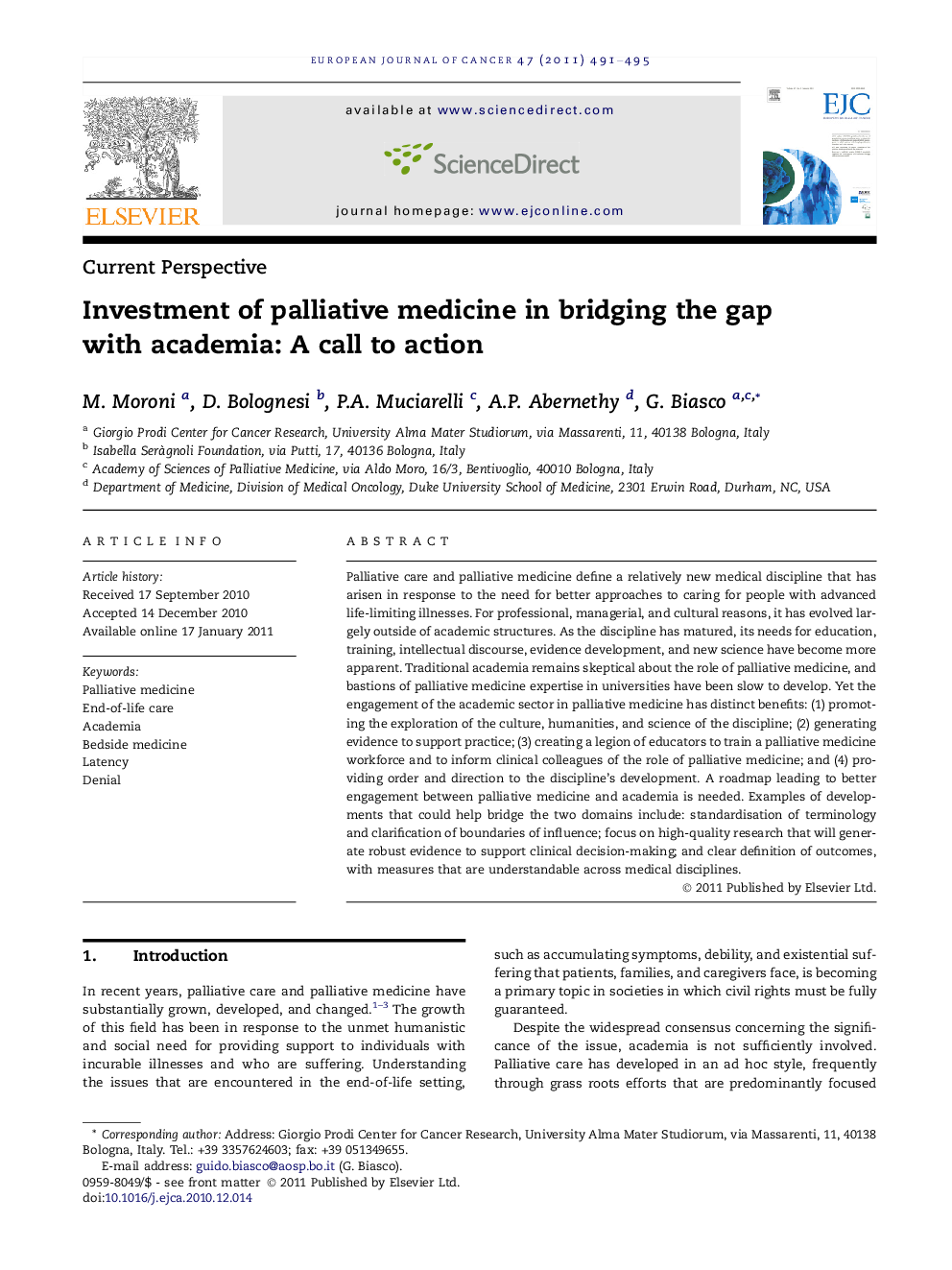| Article ID | Journal | Published Year | Pages | File Type |
|---|---|---|---|---|
| 2122932 | European Journal of Cancer | 2011 | 5 Pages |
Abstract
Palliative care and palliative medicine define a relatively new medical discipline that has arisen in response to the need for better approaches to caring for people with advanced life-limiting illnesses. For professional, managerial and cultural reasons, it has evolved largely outside of academic structures. As the discipline has matured, its needs for education, training, intellectual discourse, evidence development and new science have become more apparent. Traditional academia remains sceptical about the role of palliative medicine, and bastions of palliative medicine expertise in universities have been slow to develop. Yet the engagement of the academic sector in palliative medicine has distinct benefits: (1) promoting the exploration of the culture, humanities and science of the discipline; (2) generating evidence to support practice; (3) creating a legion of educators to train a palliative medicine workforce and to inform clinical colleagues of the role of palliative medicine; and (4) providing order and direction to the discipline's development. A roadmap leading to better engagement between palliative medicine and academia is needed. Examples of developments that could help bridge the two domains include: standardisation of terminology and clarification of boundaries of influence; focus on high-quality research that will generate robust evidence to support clinical decision-making; and clear definition of outcomes, with measures that are understandable across medical disciplines.
Related Topics
Life Sciences
Biochemistry, Genetics and Molecular Biology
Cancer Research
Authors
M. Moroni, D. Bolognesi, P.A. Muciarelli, A.P. Abernethy, G. Biasco,
